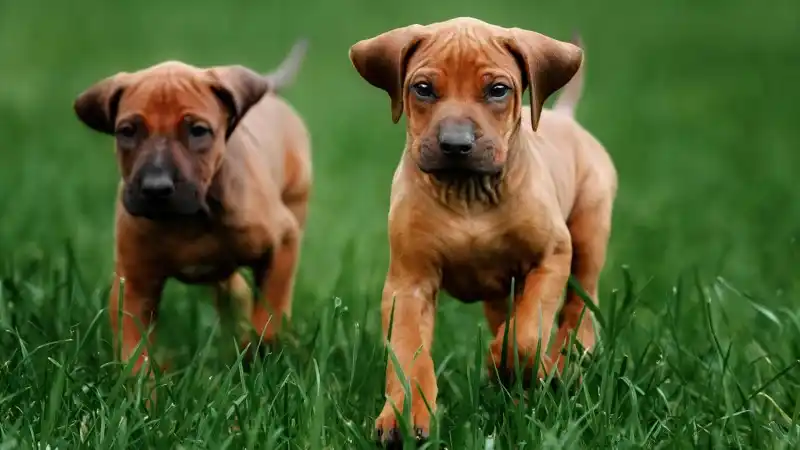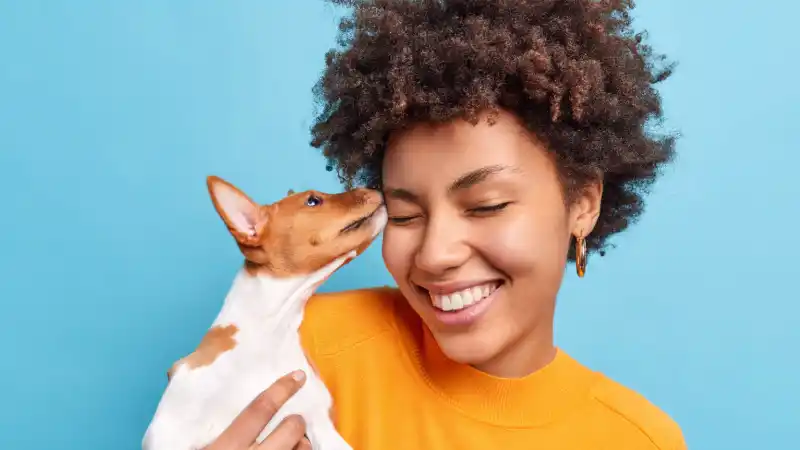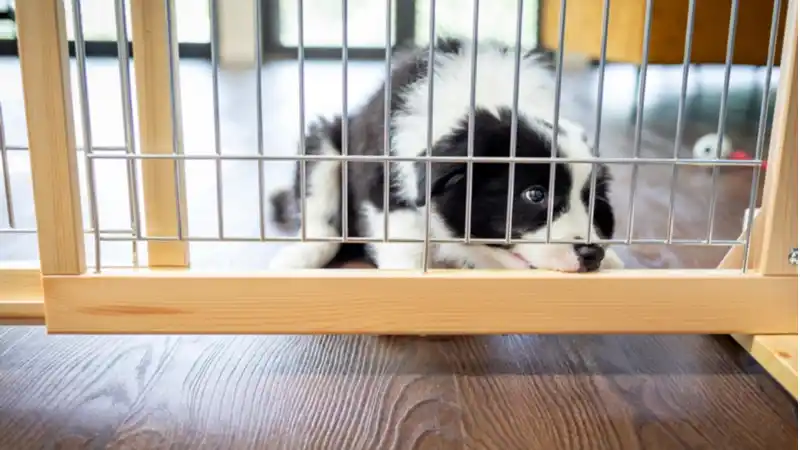New Puppy Tips
Everything you need for your puppy to thrive in their new home! Check out our new puppy checklist for essential supplies like toys, beds, treats, and more!
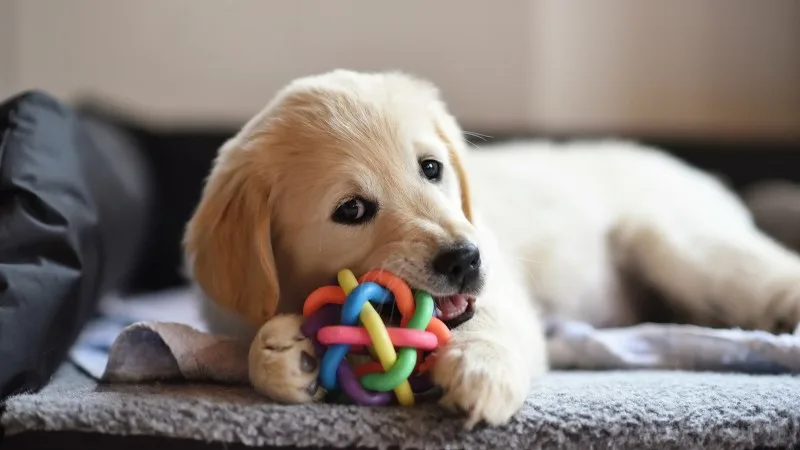
Congratulations! You’re welcoming home a new puppy. This furry bundle of joy won’t just add fun and excitement to your day, but could also help you reduce stress, get out to socialize, and even lower your blood pressure.
Remember, dogs will do anything for you, so it’s important that you do your part as a pet owner to give them everything they need to thrive in their new home.
When it comes to the things you need for a puppy, you're going to get all kinds of recommendations from pet-savvy friends. Try to use common sense and choose the puppy necessities that are actually… necessary.
Here are our new puppy tips, as well as a new puppy checklist for you to peruse:
New Puppy Checklist
Don’t forget the basic essentials when asking yourself, “What do I need for a puppy?” We’ve got everything you need in our new dog checklist.
Collar, ID tags, and microchips: Dogs get lost and stolen all the time. With collars, identification tags, and microchips, lost pets have a greater chance of ultimately finding their way back home. Put your contact information (including phone number) on their identification tags, and make sure to update this information if you move. During your puppy’s first veterinary visit, it's a good idea to talk to their doctor about microchipping. This quick and inexpensive procedure involves implanting a tiny chip under their skin. Once your dog is microchipped, register the chip in the appropriate database.
Crate and dog bed: Puppy crates are a valuable training resource that provides a comfortable personal space for dogs. Purchase a dog crate that your pet can grow into to ensure you don’t need to buy one or several replacements as they age. In addition, a soft bed can help make a crate more inviting.
Types of Food: Buying puppy food for the first time can be daunting for new dog owners. There are hundreds of brands and puppy food blends to choose from, not to mention deciding between hard and soft food and whether or not to splurge on human-grade dog foods. Use a food labeled as complete and balanced for puppies or for all stages of life.
Food and water bowls: Specially-formulated food will help your new puppy get healthy and strong... but don’t forget about food and water bowls! Options range from plastic and stainless steel to metal and stoneware, but picking something high-quality and sturdy is always a great idea since puppies can have voracious appetites. Studies have also shown that stainless steel is probably your safest option.
Treats: More than just a tasty snack, treats can be a valuable tool throughout the training and socialization process. Plus, it just feels nice to pamper your puppy.
Leash and poop bags: Walking is great exercise for puppies and pet owners. Pick up a sturdy leash at the local pet store and plenty of bags to clean up after your young pup. Disposing of dog waste isn’t just the right thing to do. In many areas, it’s the law!
Pee pads and cleaning supplies: No matter what you do to try and stop it ahead of time, there will always be accidents with a new puppy. Having pee pads, paper towels, a scrub brush, and cleaning supplies on hand for carpet, hard flooring, and furniture is the best way to prepare for the worst.
Toys for Puppies: Dog toys aren’t just about fun and games. They’re often a valuable training resource that can help develop skills while encouraging good behavior and strengthening the bond between pet and owner. Toys are puppy necessities and a must-have for any new pet owner.
Puzzle toys for dogs: Offering mental and physical stimulation, puzzle toys provide hours of fun while keeping pups engaged. They’re an especially great choice for pet owners concerned about leaving their puppies alone for long periods. In addition, a puzzle toy is often a great antidote for boredom and separation anxiety in dogs.
Fetch toys: Fetch is an old standby for a reason – dogs love it. So, if you’ve got the space for your dog to run and fetch, pick up some balls and provide an opportunity to exercise and get rid of excess energy.
Dog chew toys: As they lose their baby teeth and grow their adult dog teeth, young puppies will gnaw on just about anything they can get their paws on. A good dog chew can provide an appropriate outlet for what could otherwise prove to be destructive puppy behavior.
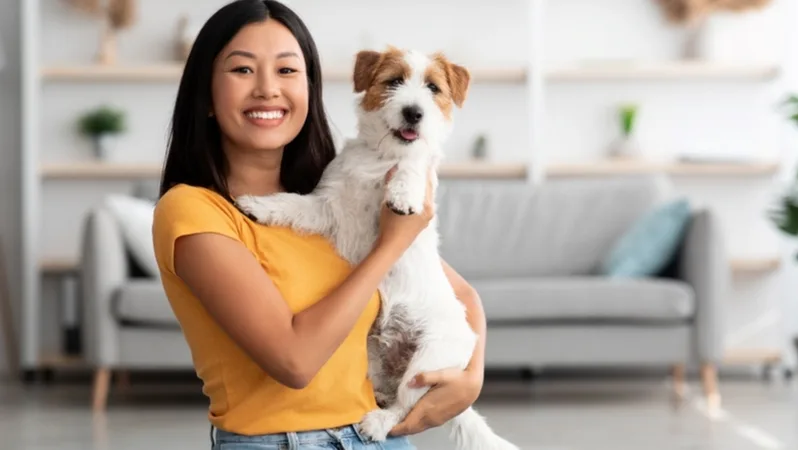
Every Dog and Cat Deserves the Pet Insurance of Champions
Get prize-winning care for your pets.
Tools and Gear for New Puppy Owners
You may not need to grab all these pet care items on day one, but these puppy essentials will help your dog grow into a healthy and happy pup.
Brush: Count on regular brushing if you’ve got a dog with a thick coat. Some breeds will require grooming sessions several times a week to keep them comfortable and reduce excessive shedding. A gentle puppy shampoo with oatmeal or a dog-safe soap can also help with bathing.
Dog toothpaste and a toothbrush: Introducing proper dental hygiene early is essential for safeguarding the health of your dog’s mouth, teeth, and gums. A staggering two-thirds of adult pets suffer from periodontal disease and illnesses related to poor dental hygiene. Your puppy may never enjoy having their teeth brushed, but introducing the process early can help them learn to accept it happily. Don’t reach for the toothpaste in your medicine cabinet! A dog toothpaste developed for your puppy's specific needs is the best choice.
Cleaning products: Accidents happen. Despite your best potty-training efforts, you’ll clean up a few messes during your dog's life—stock up on products designed specifically for pet stains and odors.
Baby (Puppy) Gates: Use a puppy gate (or baby gate) to set boundaries and keep your new pup out of harm's way. Dog gates can be a great training tool to help your dog understand where they are welcome and where they are not.
Be sure to have fun with your new puppy, and don’t hesitate to consult your veterinarian if you have any questions.
Training Your Puppy
Pet owners may consider a “learn to earn” program when they bring home their puppy. According to behavior expert Dr. Sophia Yin, “Training your pup is about setting clear rules and guidelines, communicating them by rewarding the desired behaviors exactly as they occur and removing rewards for the undesired behaviors.”
**Potty training:**Potty training is about where to go and teaching your pup where is appropriate.
Training to say please: Your puppy says please by sitting and looking at you.
Tether your puppy to you: Your puppy needs to have a lot of practice learning to walk by your side as you go from place to place and sit when you stop or stand still.
Puppy Insurance
Whether or not you’ve realized it, dogs - especially puppies - tend to get into all kinds of trouble. And, even when they aren't actively digging through the trash looking for chicken bones or playing wildly, new dogs are still susceptible to a variety of accidents and illnesses. When it's 2 a.m., and you're up against kennel cough, a rash, or fever, you'll thank your lucky stars that you already have pet insurance.
Getting pet insurance is easier than you think. For the best dog insurance around, check out AKC Pet Insurance. They’re the pet insurance of champions and the only pet insurance provider covering curable and incurable pre-existing conditions*. You can review the various AKC Pet Insurance plans here -- there are several options to choose from, so no matter what your budget looks like, there's a plan here suitable for you and your new dog.
*Not available in all states. Pre-existing conditions covered after 365 days of continuous coverage.

Every Dog and Cat Deserves the Pet Insurance of Champions
Get prize-winning care for your pets.
Everything You Need for Your Puppy
There's nothing more remarkable than having a brand-new baby dog in the house. Before you run to the dog breeder, dog rescue, or another adoption venue, be sure you’ve completed the following:
Puppy-proof your home: Just as you would keep a baby or toddler away from harsh chemicals, open toilets, and wide-open cabinets at floor level, you'll want to do the same for a new puppy.
Choose a dog breed appropriate for your lifestyle: If you live in a small apartment, a Great Dane is not the best dog breed. Likewise, unless you enjoy walking more than four or five miles a day, a Jack Russell Terrier won’t be the best fit either. Take this dog breed selector quiz to learn which breeds are the most suitable for your lifestyle and home size.
Keep the right things within reach: Just as you don't want your new puppy getting into the chemicals under the sink, you also want them to be able to easily access the things that are theirs. For example, if you have a giant breed, go ahead and get a water and food bowl with a lift, so they don't have to strain their neck. Make sure their toys are also within reach. Putting them away to keep your house tidier could cause them to reach for the trash.
If you love it, hide it: We've already covered putting away dangerous things like chemicals, but what about shoes, sunglasses, watches, earrings, and even family heirlooms? Yep, a new puppy will find it if it has any value. For this reason, keep your closets closed, keep your jewelry up high, and keep anything you care about far out of their reach by any means necessary!
Get them used to nail clippers early: To keep your pup from being skittish later in life, consider cutting their nails as early as needed. Getting young dogs used to a routine is good for both of you, since it means less stress in the future and less fear for your dog.
Start crate training immediately: Unless you plan to avoid crate training entirely, it's something you'll want to start right away. A puppy should not be taken away from their mother or littermates until they are at least eight weeks old, and a pup younger than that should not be in a crate alone. As long as your new dog is at least eight weeks of age and appropriately socialized with their littermates and others, you can have their crate ready for bedtime on the first night.
Click here for our printable new puppy checklist!
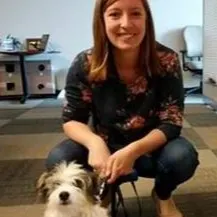
Mary comes to AKC Pet Insurance with an extensive background in animal care. As a lifelong animal lover, she has a passion for promoting pet health and wellness. Mary lives in Kentucky with her orange kitty, "Cat" and her dog, " Wubbi".
READ MORE ARTICLES